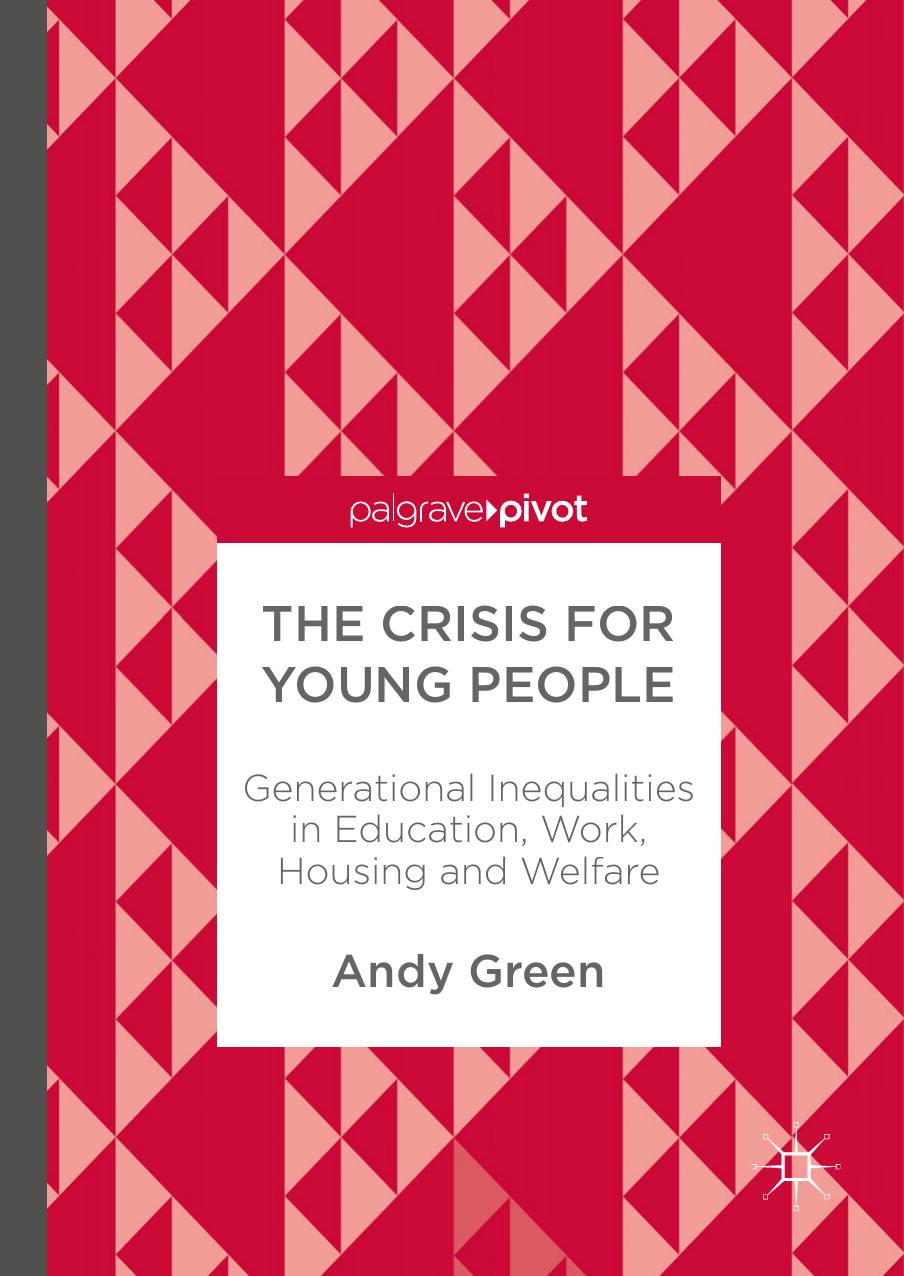The Crisis for Young People by Andy Green

Author:Andy Green
Language: eng
Format: epub, pdf
Publisher: Springer International Publishing, Cham
Intergenerational Transfers
David Willetts estimated (for 2009) that governments currently spent around £125 billion pa in welfare on those over 65 (£50 billion in health care and £75 billion in state pensions ). By contrast it spent about £80 billion on people under 18 (£50 billion on education an the rest on child benefits and tax credits). The flow goes increasingly towards the old rather than to the young. The over 60s currently get three quarters of all public spending on benefits. The Treasury’s long-term spending projections show the proportion of spending on age-related benefits rising from 20.1 percent of GDP in 2007/2008 to 26.6 percent in 2057/2058. As the current 20s age group reaches their 40s, when they pay most tax, their tax burden may have increased very substantially. Those born in the 2017 will enter their 40s in 2057 by which time total age related government spending may have grown as a proportion of GDP by six percentage points. This suggests much higher taxation for the coming generation when they reach their prime earning years.
Welfare states are designed to smooth the risks over the life course, and they generally involve adults of working age being net contributors and the young and the old being net beneficiaries. However, as populations age, the age-related imbalances tend to get larger, with those in their prime working years being obliged to pay more taxes to fund the health care and state pensions of a larger elderly population. Age-related inequalities in net contribution to the welfare system would have increased, but lifetimes costs and benefits for different generations might not have changed. The so-called generational contract over the welfare state would still be in place. However, if the current young generation make larger contributions in taxes to the welfare state than previous generations in their prime years, but fail to get the same benefits when they retire, the intergenerational contract begins to break down, and a gap will have opened up in the lifetime welfare benefits of two generations.
Historical estimates by London School of Economics social policy expert, John Hills, of what past generations have put in and taken out, does suggest that some generations do better than others. Those born between 1901 and 1921, when the welfare state was just getting established, are estimated to have taken out between 115 and 122 percent of what they put in. Then the balance evened out until the baby boomers. The late baby boomers born between 1956 and 1961 are forecast to get out from the welfare state 118 percent of what they put in.11 As Willetts suggests, the young people today are likely to be generational losers. This will almost certainly be the case in terms of private pensions, since they will be paying higher contributions during their prime years to fund the growing costs of the relatively generous pensions held by many of their parents’ generation. But they themselves may only receive a pittance in retirement from their own ‘defined contribution’ occupational pensions schemes, if indeed they have them, which many will not.
Download
This site does not store any files on its server. We only index and link to content provided by other sites. Please contact the content providers to delete copyright contents if any and email us, we'll remove relevant links or contents immediately.
International Integration of the Brazilian Economy by Elias C. Grivoyannis(111059)
The Radium Girls by Kate Moore(12028)
Turbulence by E. J. Noyes(8049)
Nudge - Improving Decisions about Health, Wealth, and Happiness by Thaler Sunstein(7706)
The Black Swan by Nassim Nicholas Taleb(7129)
Rich Dad Poor Dad by Robert T. Kiyosaki(6632)
Pioneering Portfolio Management by David F. Swensen(6300)
Man-made Catastrophes and Risk Information Concealment by Dmitry Chernov & Didier Sornette(6019)
Zero to One by Peter Thiel(5801)
Secrecy World by Jake Bernstein(4753)
Millionaire: The Philanderer, Gambler, and Duelist Who Invented Modern Finance by Janet Gleeson(4478)
The Age of Surveillance Capitalism by Shoshana Zuboff(4292)
Skin in the Game by Nassim Nicholas Taleb(4248)
The Money Culture by Michael Lewis(4207)
Bullshit Jobs by David Graeber(4190)
Skin in the Game: Hidden Asymmetries in Daily Life by Nassim Nicholas Taleb(4006)
The Dhandho Investor by Mohnish Pabrai(3764)
The Wisdom of Finance by Mihir Desai(3746)
Blockchain Basics by Daniel Drescher(3582)
